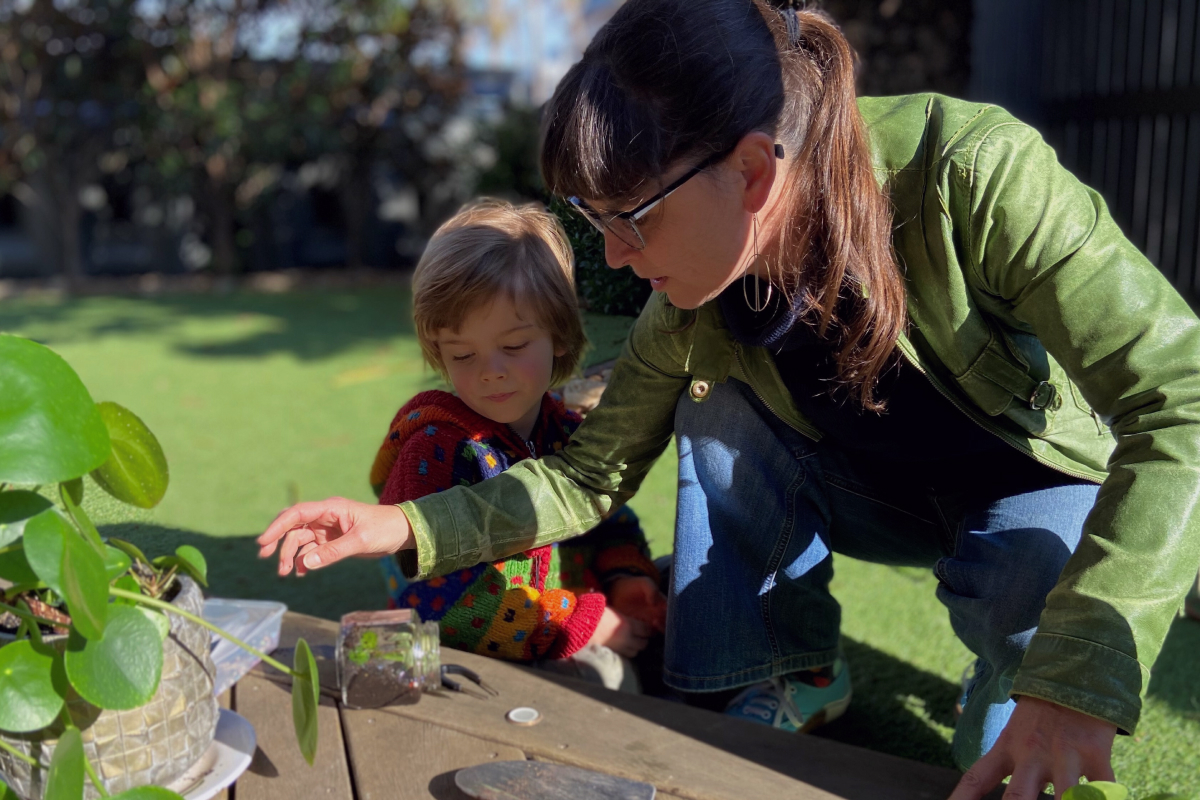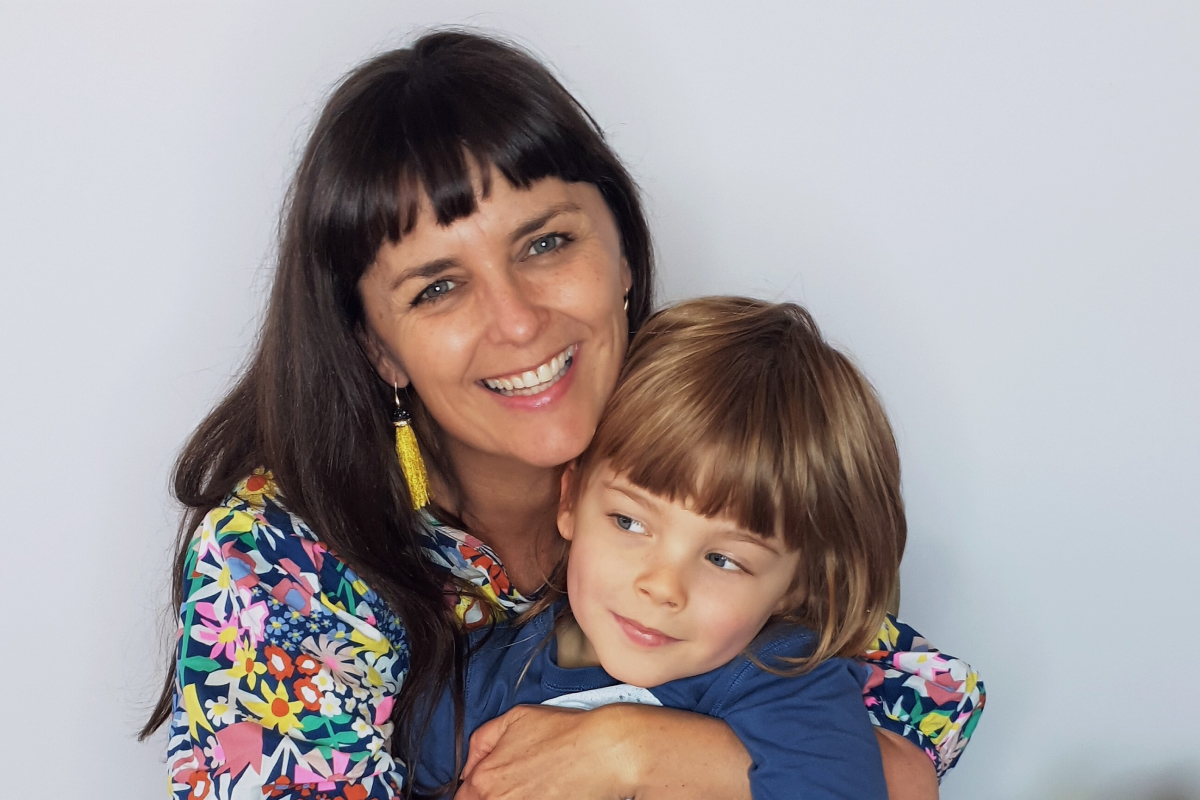Need a dose of parenting inspiration? Then look no further than Susie Hopkins. A health professional with a track record helping others achieve less stress and more well-being, Susie talks the talk AND walks the walk in her personal life. With resilience and grace, she’s navigated the IVF rollercoaster, solo-parenthood, and her son Harry’s autism diagnosis.
Susie speaks to us openly about the journey to Harry’s diagnosis, juggling work and care, and looking after your own well-being when time to yourself is like gold dust.
Your child, Harry, received an autism diagnosis. Can you tell us a little about how you came to receive this diagnosis?
It was a long journey to get to this point. There were three years of concerns and so much stress before we finally got a diagnosis at four-and-a-half. We had made a lot of headway as terrible sleep issues had been addressed, and a dietician had helped with food intolerances which really affected Harry’s behavior. But his kinder teachers were still concerned and referred us to a child mental health service. Then it still took about five months to get the diagnosis.
Was there ever a time before receiving the diagnosis when you were reassured by friends, family, or medical experts that your child’s behavior was typical of other kids their age, but your instincts told you otherwise?
Yes, to the first question. I was reassured by my uncle who is a pediatrician and my doctor that Harry’s behavior was fine. He’d seen a neurologist after seizures when he was younger too.
But I wouldn’t say my instincts told me otherwise. I had not suspected he had a developmental condition. He doesn’t present that way for the most part. He has great eye contact and had met all his milestones. I was just told he was a very determined child!
I thought I just had a kid whose terrible twos were off the scale.
How did you feel when Harry received the diagnosis?
I was shocked, but I was OK. It would have been different if we were still in the throes of when it was horrendously difficult. As we’d made so much progress already, I did a reasonably good job of taking it in my stride. But you can’t help but worry A LOT about his future. I worry way less now that I know how well he’s responding to therapy and that I understand so much more about autism — and he really is such an exceptional kid! I know I’m biased, but I’m so confident he will have a good life. Pretty much everything will be harder for him though, it won’t be easy. But he really is thriving so that’s what I focus on.
In what ways do you find your day-to-day routines are different than those of parents to neurotypical children?
Hours and hours and hours of appointments, research, admin, meetings with preschool, speech therapy practice every day, making visual cards and schedules, etc. It’s massive, the work that goes into giving him the best chance in life.
Over the years, we’ve done a lot less out and about. It’s been harder just to get out the door, but it’s getting easier. Massive food intolerances haven’t helped. Thankfully, huge meltdowns are rare these days but they definitely made it harder to do everything when he was younger. And he hasn’t bonded so much with other kids, so we haven’t gone on so many play dates (plus I’m an older mother so most of my friends’ kids are much older).
Managing your child’s needs on top of your day-to-day family and work requirements must be incredibly challenging at times. What advice do you have for other parents facing a similar situation?
Be very intentional in how you organize and prioritize your ‘me’ time. And meditate. The clarity you get from meditation is a life-saver in terms of day-to-day organization. Let alone stress management, acceptance, patience, etc.

What is your way of coping with the emotional and physical demands of caring for a child with autism? What do you do when you find yourself frustrated or overwhelmed? How do you recharge?
Meditation, baths, dancing, and I get help in whatever way I can. As a small business owner that has been unable to dedicate as much time to it as I’d like, my income is not very high right now but I still have a cleaner. It’s an absolute godsend. Exercise and enough sleep are also absolutely essential. Every now and then I slacken off on these things — we’re all human. But not for long! Life is SO much better when I look after myself properly.
Do you feel or have you ever felt socially isolated because of your child’s autism, and if so, how do you deal with that? How can others help?
Thankfully I’m very resilient in this regard. I have definitely felt socially isolated but probably more because I parent solo. But yes, there are times I have been close to falling to pieces and have had explicitly, through tears, to ask for help.
Others can help, not only by asking how you are and being an ear but by asking outright, “What do you need?” As much as people mean well, if people offer to take Harry for an hour or two when it suits them, usually I can’t use that time very effectively. And it takes some organizing and can feel like more work. The best thing is when someone asks, “When would you like Harry to come over here for a sleepover?” or perhaps, “What can I do to help?” when things are tough, like when he or I am sick.
What should we tell our kids if they ask (loudly) about a difference they see in another child?
Remind them that we all have strengths and weaknesses. Remind them that the child is fortunate they don’t have more challenges and remind them that kindness is more important than anything.
What do you wish you could tell others, but don’t usually get the chance?
People with autism are awesome. Their minds are awesome and I feel so blessed to have Harry in my life just the way he is. And I love educating people about neurodiversity. Autism, ADHD, dyslexia, etc. may in many ways pose huge challenges, but they also bring with them incredible gifts. But they can only be experienced in this way if we’re surrounded by others who are educated and understanding of our needs. I also have ADHD, so I speak from experience that goes beyond my son.
Also, if you’re wondering whether you should get help in relation to this stuff, or anything really, the fact that you’re asking the question means the answer is yes.
My mantra is if things feel harder than you think they should, seek help.
I’m happiest when… obviously when my beautiful boy is happy, when he has a buddy and you can see that they really love each other. Social stuff is so tough for him. It has happened a handful of times, but there’s already been a lot of hurt in relation to friendship stuff.
But also, when my house, car, and garden are clean and tidy, and my eyebrows, bikini line, and legs are sorted! I can take on the world when all this aligns!
I’m inspired by… as well as being inspired by impact-driven business-women, my inspiration comes from a deep desire to enable others to have the most positive impact they can on the world and others.







